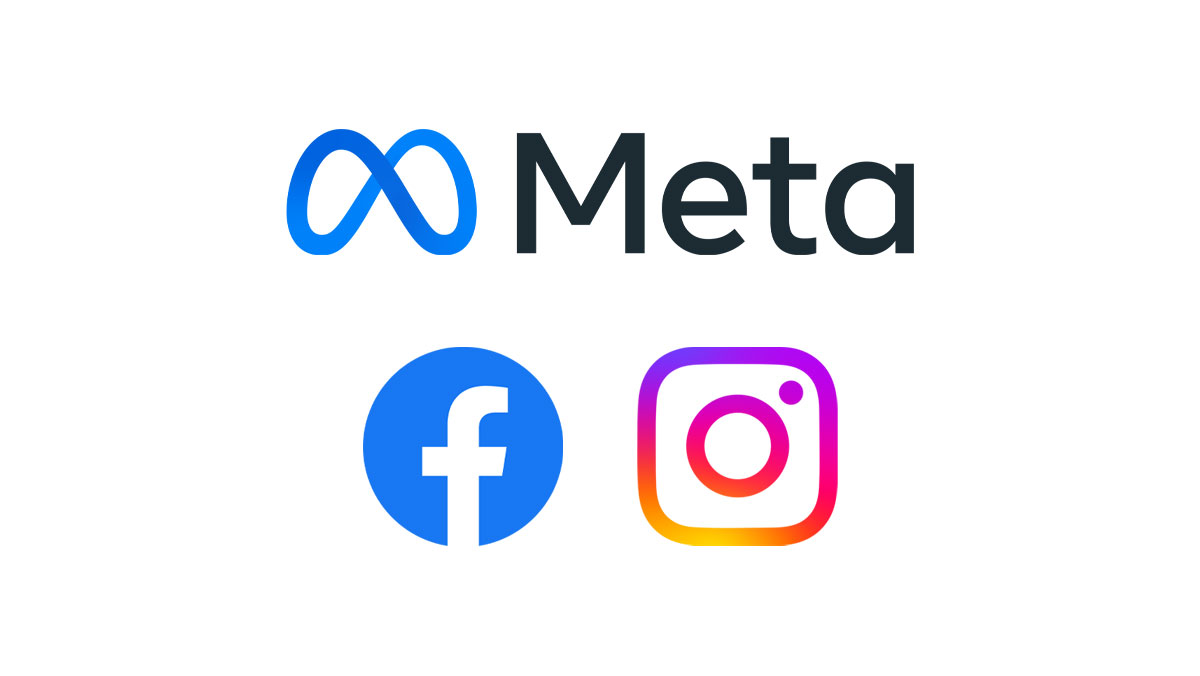Technology
Meet Most Followed World Leaders on Instagram

By Dipo Olowookere
Indian Prime Minister, Narendra Modi, is the most followed world leader on Instagram with 14.8 million followers. He is closely followed by Indonesian President, Joko Widodo, with 12.2 million followers, who more than doubled his followers over the past 12 months, according to the newly released 2018 World Leaders on Instagram study by leading global communications agency BCW (Burson Cohn & Wolfe). With 10 million followers, the United States President, Mr Donald Trump, is in third position.
Pope Francis is in fourth position with 5.7 million followers, just ahead of Queen Rania of Jordan, Turkey’s President Recep Tayyip Erdoğan and the White House account, each with more than 4 million followers. The UK Royal Family has almost tripled its followers over the past 12 months in large part thanks to the pictures of the royal wedding of Prince Harry and Meghan Markle which increased the account’s followers by 570,000 on May 19, 2018.
The study analyses the activity of the 426 Instagram accounts of heads of state and government and foreign ministers, 100 more than in the 2017 study, using aggregate data from Facebook’s CrowdTangle tool.
As of October 1, 2018, the accounts have a combined total of 98.3 million followers and published 98,372 posts in the past 12 months which have garnered a total of 860.4 million interactions (comments and shares).
U.S. President Donald Trump leads the rankings in terms of total interactions (comments and likes). Over the past 12 months, @realDonaldTrump has garnered more than 218 million interactions, more than three times as many as Indian Prime Minister Narendra Modi who has more followers but only 69 million interactions on his 80 photos and videos over the past year. However, considering the number of interactions (comments and likes) per post, India’s Prime Minister Narendra Modi is the most effective world leader on Instagram, with each of his 80 posts receiving, on average, 873,302 interactions. Turkey’s President Erdoğan is in second position with 413,934 interactions and Indonesia’s President Joko Widodo’s Instagram posts receive an average of 411,673 interactions per post.
“This third installment of the BCW study shows Instagram has become the social media network where world leaders garner the most interactions,” said Chad Latz, Chief Innovation Officer, BCW. “What is astounding is that the average size of world leaders’ Instagram accounts is less than half the size of their Facebook pages – with five times fewer posts over the past 12 months. However, all Instagram accounts together total 860 million interactions, which is 162 million (23 percent) more than the total interactions on Facebook over the same period.”
The World Leaders on Instagram study also found that 156 of the 193 United Nations member states maintain an official Instagram account, 16 more than in the 2017 study. Ninety-two heads of state, 48 heads of government and 36 foreign ministers maintain personal pages on the platform, which tend to get better engagement than institutional accounts.
Instagram is not the most obvious social network to make sweeping policy statements, however Instagram Stories have become a secondary channel for digital diplomacy, where word leaders meet, greet and tag each other.
Ghana’s President Nana Akufo-Addo is Sub-Saharan Africa’s most followed leader on Instagram with 431 million followers, ahead of Rwanda’s President Paul Kagame and Nigerian President Muhammadu Buhari with more than 160,000 followers each.
Also, Jordan’s Queen Rania is the most followed Arab leader with more than 4.8 million followers, surpassing Sheikh Mohammed, the Vice President and Prime Minister of the United Arab Emirates, with more than 3.3 million followers.
In addition, Argentina’s President Mauricio Macri is the most followed Latin American leader on Instagram with 880,000 followers ahead of outgoing Mexican President Enrique Peña Nieto and Paraguay’s Mario Abdo Benítez who each boast more than half a million followers.
The British Royal Family tops the Instagram ranking in the European Union with 3.5 million followers, far ahead of French President Emmanuel Macron, with 1.1 million followers, and Germany’s Chancellor Angela Merkel with 684,000 followers.
The Information Department of the Government of Brunei is the most active government account, with more than 17 posts per day on average. Imran Khan, Pakistan’s Prime Minister, is in second position with more than 10 posts per day and the Foreign Ministry of Kuwait is the third most prolific with more than eight posts per day.
Since June 2018, 15 percent of the 426 accounts have created Instagram TV (IGTV) channels which allow users to upload up to 60-minute-long videos in vertical format.
Technology
Capillary Technologies Acquires SessionM from Mastercard

By Modupe Gbadeyanka
A software product company established in 2012, Capillary Technologies India Limited, has acquired the customer engagement and loyalty company, SessionM, from Mastercard.
This followed a definitive agreement signed by the global leader in AI-powered customer loyalty and engagement solutions with the renowned digital payments firm.
The acquisition of SessionM is the latest in a series of strategic moves by Capillary, following its successful listing on the Indian Stock Exchange in November 2025.
With SessionM in its portfolio, Capillary reinforces its position as a global leader in enterprise loyalty, offering a leading platform to the world’s most sophisticated enterprise brands.
Mastercard has identified Capillary Technologies—consistently recognised as a Leader in The Forrester Wave as the ideal partner to lead SessionM into its next era of growth.
As part of the agreement, a specialised team within SessionM will transition to Capillary, ensuring that the platform’s deep technical expertise is preserved.
SessionM’s esteemed global customer base—which includes Fortune 500 retailers, airlines, and CPG brands—will continue to receive the same high-calibre support and service they experienced before the acquisition.
“M&A has been a key growth strategy for Capillary over the years, and as a public company, we are delivering on that promise to our shareholders and the market.
“By bringing SessionM into our portfolio, we are not just expanding our footprint across the globe; we are further strengthening our loyalty capabilities to deliver one of the industry’s most comprehensive offerings.
“Our mission remains to provide enterprises across industries with specialised, AI-native loyalty technology solutions,” the chief executive of Capillary Technologies, Aneesh Reddy, commented.
Technology
Emergent Ventures, Others Invest $2.2m in Potpie

By Dipo Olowookere
About $2.2 million pre-seed round to help engineering teams unify context across their entire stack and make AI agents genuinely useful in complex software environments has been announced by Potpie.
Potpie was established by Aditi Kothari and Dhiren Mathur, who were determined to unify context across the entire engineering stack and enabling spec driven development.
As generative AI adoption accelerates, most tools focus on surface-level code generation while ignoring the deeper problem of context.
Large language models are powerful, but without access to system-level understanding, tooling history, and architectural intent, they struggle in real production environments.
Traditional approaches rely on senior engineers to manually hold this context together, a model that breaks down at scale and fails when AI agents are introduced.
The platform enables teams to automate high-impact and non-trivial use cases across the software development lifecycle, like debugging cross-service failures, maintaining and writing end-to-end tests, blast radius detection and system design.
It is designed for enterprise companies with large and complex codebases, starting at around one million lines of code and scaling to hundreds of millions.
Rather than acting as another coding assistant, Potpie builds a graphical representation of software systems, infers behaviour and patterns across modules, and creates structured artefacts that allow agents to operate consistently and safely.
A statement made available to Business Post on Monday revealed that the funding support came from Emergent Ventures, All In Capital, DeVC and Point One Capital.
The capital will be used to support early enterprise deployments, expand the engineering team, and continue building Potpie’s core context and agent infrastructure, it was disclosed.
“As AI makes code generation easier, the real challenge shifts to reasoning across massive, interconnected systems. Potpie is our answer to that shift, an ontology-first layer that helps enterprises truly understand and manage their software,” Kothari was quoted as saying in the disclosure.
A Managing Partner at Emergent Ventures, Anupam Rastogi, said, “In large enterprises, the real challenge is not generating code, it is understanding the system deeply enough to change it safely.
“Potpie’s ontology-first architecture, combined with rigorous context curation and spec-driven development, creates a structured model of the entire engineering ecosystem. This allows AI agents to reason across services, dependencies, tickets, and production signals with the clarity of a senior engineer. That is what makes Potpie uniquely capable of solving complex RCA, impact analysis, and high-risk feature work even in codebases exceeding 50 million lines.”
Technology
Expert Reveals Top Cyber Threats Organisations Will Encounter in 2026

By Adedapo Adesanya
Organisations in 2026 face a cybersecurity landscape markedly different from previous years, driven by rapid artificial intelligence adoption, entrenched remote work models, and increasingly interconnected digital systems, with experts warning that these shifts have expanded attack surfaces faster than many security teams can effectively monitor.
According to the World Economic Forum’s Global Cybersecurity Outlook 2026, AI-related vulnerabilities now rank among the most urgent concerns, with 87 per cent of cybersecurity professionals worldwide highlighting them as a top risk.
In a note shared with Business Post, Mr Danny Mitchell, Cybersecurity Writer at Heimdal, said artificial intelligence presents a “category shift” in cyber risk.
“Attackers are manipulating the logic systems that increasingly run critical business processes,” he explained, noting that AI models controlling loan decisions or infrastructure have become high-value targets. Machine learning systems can be poisoned with corrupted training data or manipulated through adversarial inputs, often without immediate detection.
Mr Mitchell also warned that AI-powered phishing and fraud are growing more sophisticated. Deepfake technology and advanced language models now produce convincing emails, voice calls and videos that evade traditional detection.
“The sophistication of modern phishing means organisations can no longer rely solely on employee awareness training,” he said, urging multi-channel verification for sensitive transactions.
Supply chain vulnerabilities remain another major threat. Modern software ecosystems rely on numerous vendors and open-source components, each representing a potential entry point.
“Most organisations lack complete visibility into their software supply chain,” Mr Mitchell said, adding that attackers frequently exploit trusted vendors or update mechanisms to bypass perimeter defences.
Meanwhile, unpatched software vulnerabilities continue to expose organisations to risk, as attackers use automated tools to scan for weaknesses within hours of public disclosure. Legacy systems and critical infrastructure are especially difficult to secure.
Ransomware operations have also evolved, with criminals spending weeks inside networks before launching attacks.
“Modern ransomware operations function like businesses,” Mitchell observed, employing double extortion tactics to maximise pressure on victims.
Mr Mitchell concluded that the common thread across 2026 threats is complexity, noting that organisations need to abandon the idea that they can defend against everything equally, as this approach spreads resources too thin and leaves critical assets exposed.
“You cannot protect what you don’t know exists,” he said, urging organisations to prioritise visibility, map dependencies, and focus resources on the most critical assets.
-

 Feature/OPED6 years ago
Feature/OPED6 years agoDavos was Different this year
-
Travel/Tourism10 years ago
Lagos Seals Western Lodge Hotel In Ikorodu
-

 Showbiz3 years ago
Showbiz3 years agoEstranged Lover Releases Videos of Empress Njamah Bathing
-

 Banking8 years ago
Banking8 years agoSort Codes of GTBank Branches in Nigeria
-

 Economy3 years ago
Economy3 years agoSubsidy Removal: CNG at N130 Per Litre Cheaper Than Petrol—IPMAN
-

 Banking3 years ago
Banking3 years agoSort Codes of UBA Branches in Nigeria
-

 Banking3 years ago
Banking3 years agoFirst Bank Announces Planned Downtime
-

 Sports3 years ago
Sports3 years agoHighest Paid Nigerian Footballer – How Much Do Nigerian Footballers Earn

















